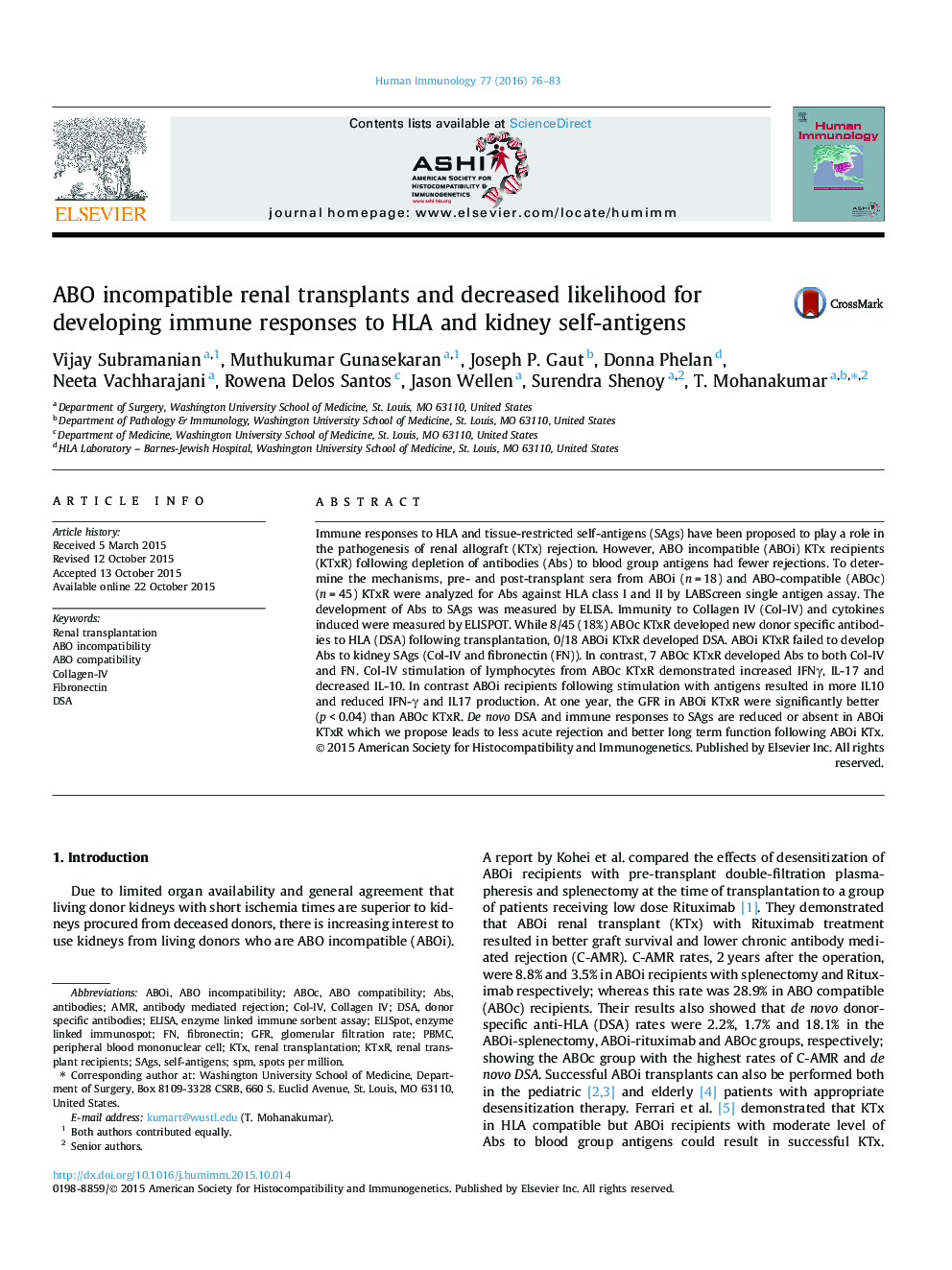| Article ID | Journal | Published Year | Pages | File Type |
|---|---|---|---|---|
| 3349541 | Human Immunology | 2016 | 8 Pages |
Immune responses to HLA and tissue-restricted self-antigens (SAgs) have been proposed to play a role in the pathogenesis of renal allograft (KTx) rejection. However, ABO incompatible (ABOi) KTx recipients (KTxR) following depletion of antibodies (Abs) to blood group antigens had fewer rejections. To determine the mechanisms, pre- and post-transplant sera from ABOi (n = 18) and ABO-compatible (ABOc) (n = 45) KTxR were analyzed for Abs against HLA class I and II by LABScreen single antigen assay. The development of Abs to SAgs was measured by ELISA. Immunity to Collagen IV (Col-IV) and cytokines induced were measured by ELISPOT. While 8/45 (18%) ABOc KTxR developed new donor specific antibodies to HLA (DSA) following transplantation, 0/18 ABOi KTxR developed DSA. ABOi KTxR failed to develop Abs to kidney SAgs (Col-IV and fibronectin (FN)). In contrast, 7 ABOc KTxR developed Abs to both Col-IV and FN. Col-IV stimulation of lymphocytes from ABOc KTxR demonstrated increased IFNγ, IL-17 and decreased IL-10. In contrast ABOi recipients following stimulation with antigens resulted in more IL10 and reduced IFN-γ and IL17 production. At one year, the GFR in ABOi KTxR were significantly better (p < 0.04) than ABOc KTxR. De novo DSA and immune responses to SAgs are reduced or absent in ABOi KTxR which we propose leads to less acute rejection and better long term function following ABOi KTx.
